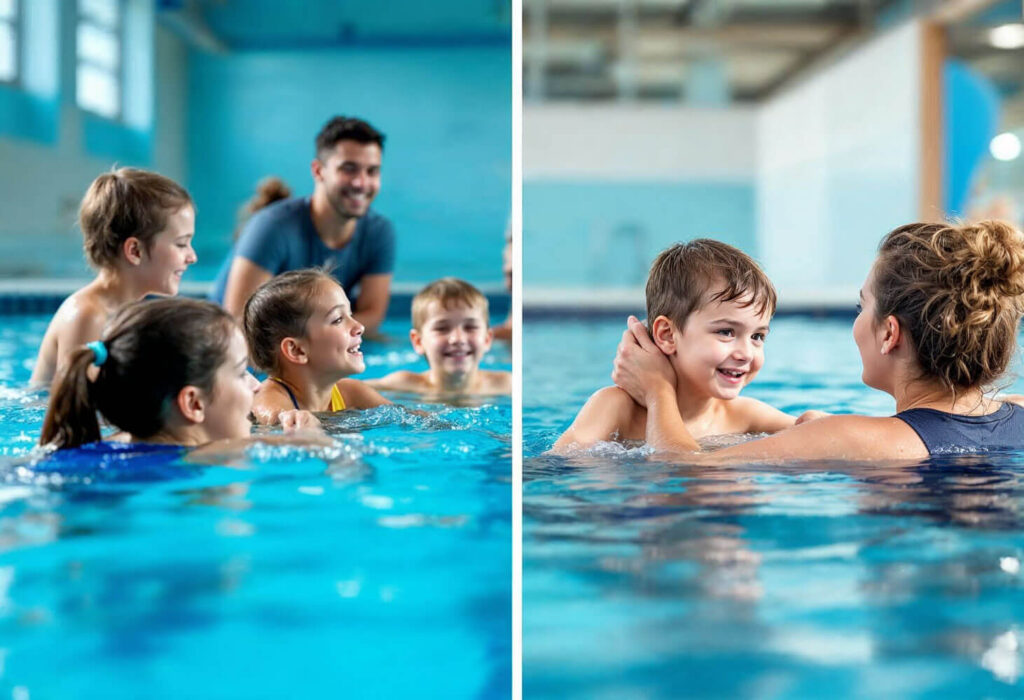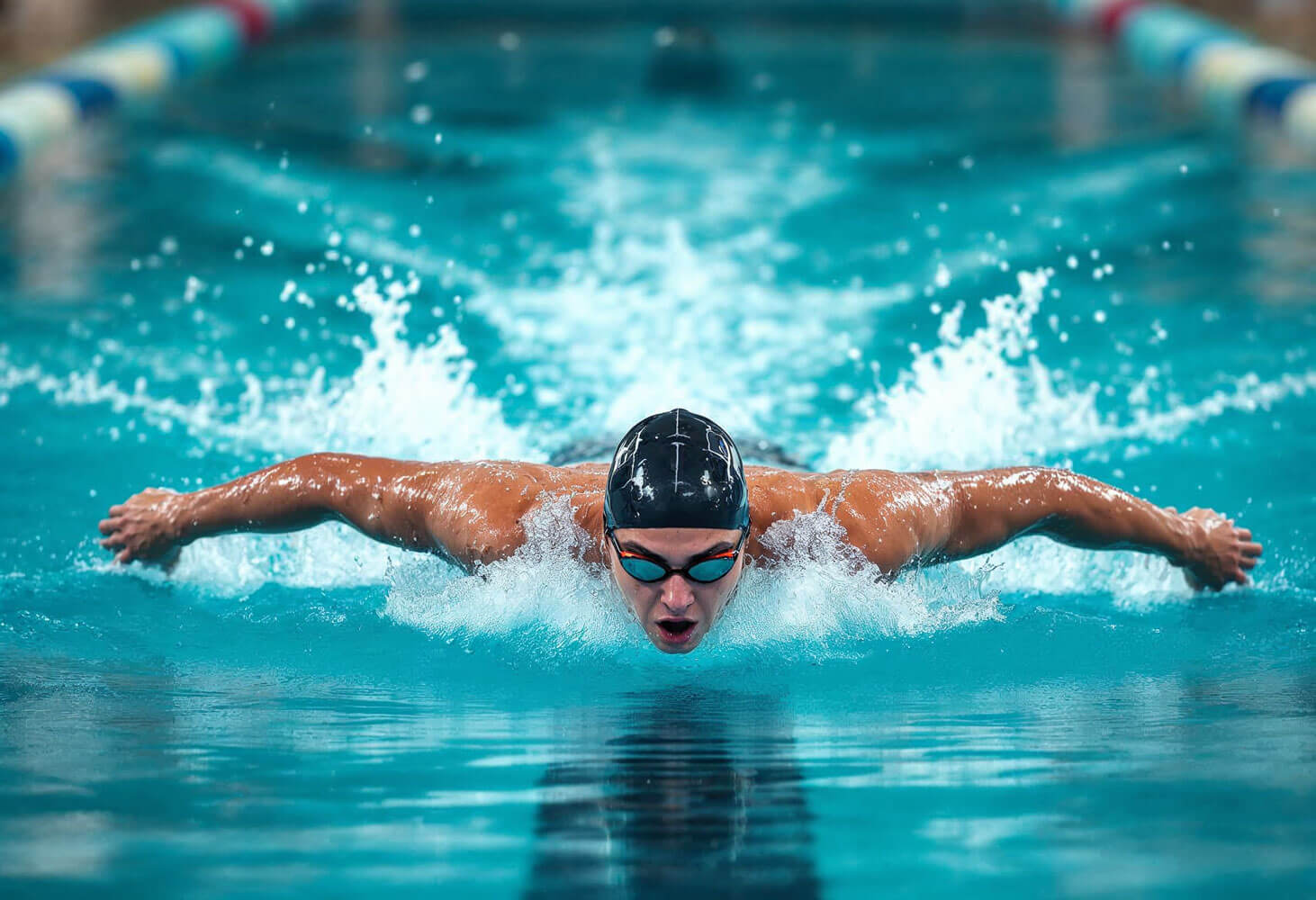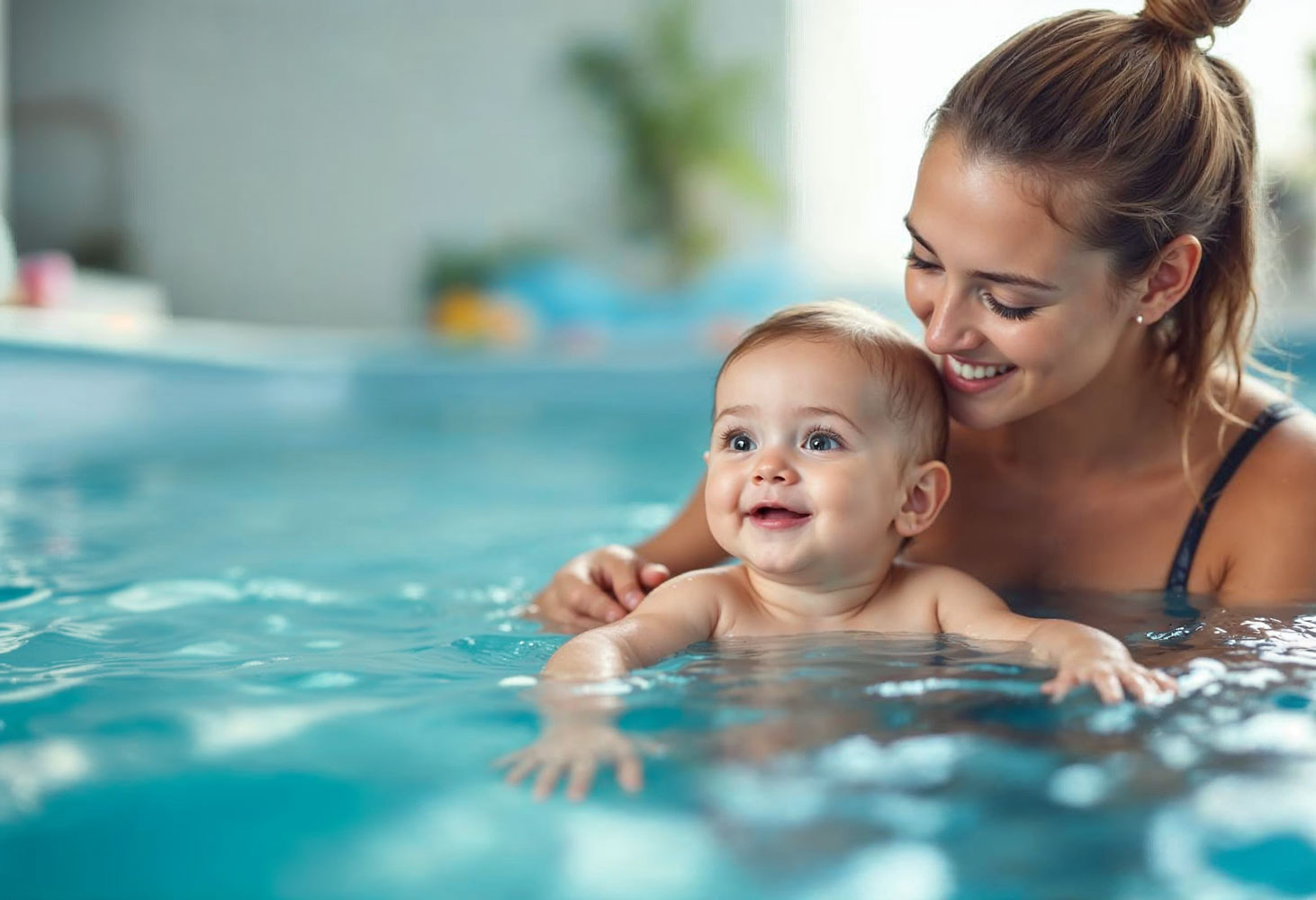How to Choose Between Group Vs. Private Swimming Lessons
Deciding between group and private swimming lessons for your child can be challenging, especially when considering their learning style, confidence level, and progress goals. At Piranha, we believe that the right approach depends on balancing individual needs with the benefits of structured training.
Studies show that children who participate in organized swimming lessons experience improvements in cognitive ability, motor skills, coordination, and social development. Whether you prefer a group setting for social interaction or private swimming lessons for kids with personalized coaching, this guide explores the pros and cons of each to help you make the best choice for your child’s swimming journey.
–
Take the plunge and improve your swimming skills with the Piranha Swim Team! Our professional instructors provide personalized training to help swimmers of all levels progress efficiently. Don’t wait—book swimming lessons for beginners now and start swimming with confidence!
What are The Differences Between Group and Private Swimming Lessons?
Class Size: How It Impacts Learning and Skill Development
Group Lessons: Typically have 4–10 swimmers per class, promoting social interaction and peer learning. While great for confidence building, limited one-on-one time can slow individual progress.
Private Swimming Lessons: One-on-one attention ensures faster skill development, personalized instruction, and immediate corrections. Best for children who need extra focus or struggle in group settings.
Pace of Learning: Individual Attention vs. Social Learning
The pace of learning differs significantly between group and private lessons. In a group setting, all students follow a structured curriculum, which ensures steady progress but may not cater to individual needs. Some swimmers may advance quickly, while others require additional time to master certain techniques. Since the instructor must balance attention across the group, swimmers who need extra help may struggle to keep up.
In contrast, private swimming lessons adapt entirely to the swimmer’s abilities and progress, allowing them to focus on weak areas and receive immediate corrections.
Cost Comparison: Which Option Offers Better Value?
Group lessons are generally more affordable since the cost is shared among multiple students. They offer structured training at a lower price, making them a good option for swimmers who can progress at a steady pace in a social setting.
Private lessons, while more expensive, provide personalized coaching and often lead to faster improvement, potentially reducing the overall number of lessons needed.
What are The Advantages of Private Swimming Lessons?
One-on-One Attention for Faster Skill Development
One of the biggest advantages of private swimming lessons is the undivided attention from an instructor. With no distractions from other students, swimmers receive immediate corrections and guidance, helping them develop proper techniques faster. Instructors can closely observe movements, identify mistakes, and make real-time adjustments, leading to quicker progress.
Personalized Training Plans Tailored to Your Child’s Needs
Every swimmer has different strengths, weaknesses, and learning speeds, which is why private lessons offer a major advantage through customized training plans. Unlike group lessons that follow a fixed curriculum, private instruction adapts to the swimmer’s individual needs, allowing them to focus on specific skills at their own pace. If a child struggles with a certain stroke or breathing technique, the instructor can dedicate more time to refining those areas.
Overcoming Water Anxiety with Individualized Support
One-on-one instruction allows the coach to address anxiety gradually, using gentle techniques to help the swimmer feel comfortable. The absence of peer pressure in private swimming lessons also allows nervous swimmers to progress at their own pace without feeling rushed. Instructors can use positive reinforcement and gradual exposure methods to ensure a stress-free learning experience, making private lessons an excellent choice for overcoming water-related fears.
What are The Advantages of Group Swimming Lessons?
Social Interaction and Teamwork in the Pool
One of the biggest benefits of group swimming lessons is the opportunity for social interaction. Learning to swim alongside peers fosters a sense of teamwork, as swimmers encourage each other and share progress.
This collaborative environment helps children feel more comfortable in the water while developing communication skills and sportsmanship. Swimming in a group also teaches patience and cooperation, as students take turns and follow structured drills together.
Learning Through Observation and Peer Motivation
Watching others swim can be a powerful learning tool. In group lessons, swimmers observe their peers’ techniques and corrections, reinforcing their own understanding of proper form. Seeing classmates successfully complete a skill can boost confidence and encourage self-improvement.
Additionally, the natural competitiveness of a group setting often pushes swimmers to try harder, keeping them engaged and motivated. Peer encouragement also helps build resilience, making it easier to overcome challenges.
Building Water Confidence in a Fun and Engaging Atmosphere
For beginners, group lessons create a supportive and enjoyable environment that helps build confidence in the water. The presence of others can make swimming feel less intimidating, especially for children who may be nervous. Instructors often use games and group activities to keep lessons fun, making the learning process more engaging.
How to Choose the Right Swimming Lesson Format for Your Child
Assessing Your Child’s Learning Style and Confidence Level
Independent Learner: If your child prefers personalized attention and works best with one-on-one guidance, private swimming lessons may be the best fit.
Social Learner: If your child enjoys group activities and learns well by observing peers, group lessons provide an engaging and interactive environment.
Fearful Swimmers: Private lessons help build confidence at a comfortable pace without distractions and peer-pressure.
Comfortable in Water: Group lessons allow them to practice skills with peers, improving social and teamwork skills.
Understanding Their Skill Level and Swimming Goals
Beginner Swimmers: If your child is just starting, group lessons provide structured learning, while private lessons can accelerate progress for those struggling.
Intermediate Swimmers: Group lessons reinforce techniques and build endurance, while private coaching can refine specific strokes.
Advanced or Competitive Swimmers: Private swimming lessons are ideal for focused skill improvement, preparing for competitions, and mastering advanced techniques.
Mixing Group and Private Lessons for a Well-Rounded Experience
Start with Private Lessons: If your child lacks confidence or struggles with basics, private instruction helps them build a strong foundation.
Transition to Group Lessons: Once they gain confidence and basic skills, group classes offer peer motivation and a structured learning environment.
Combine Both for Best Results: Some parents choose a mix—private lessons for technical improvements and group lessons for practice and endurance.








